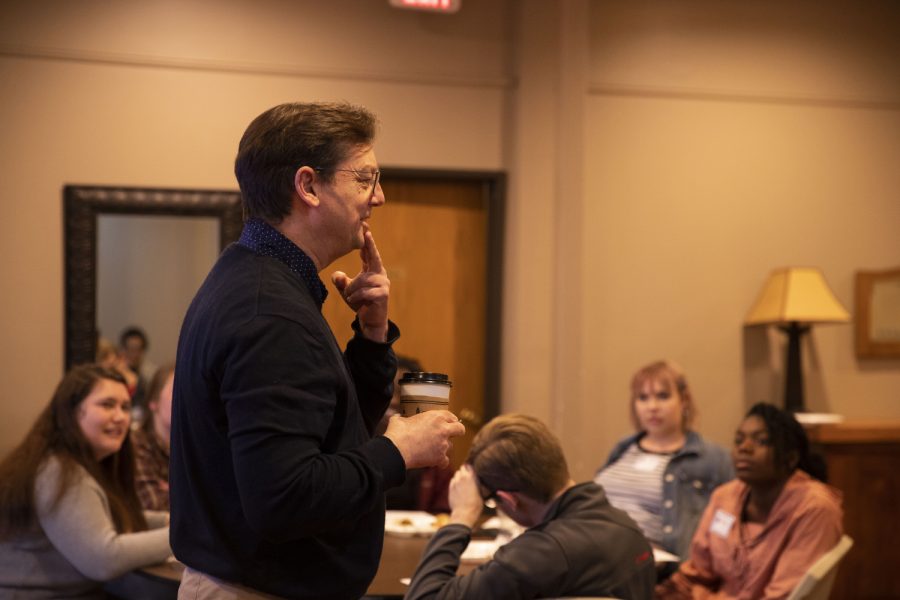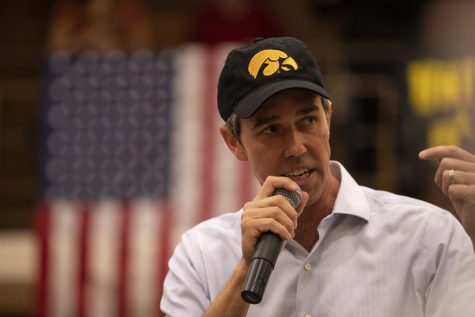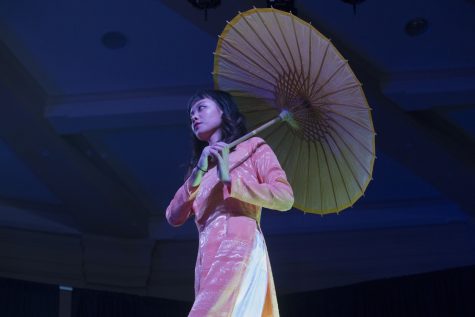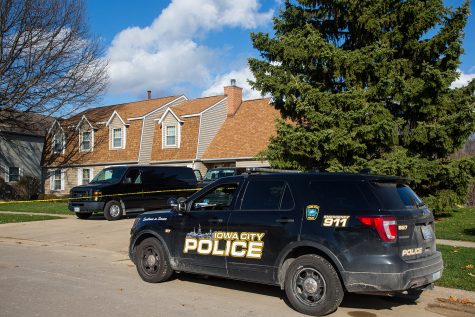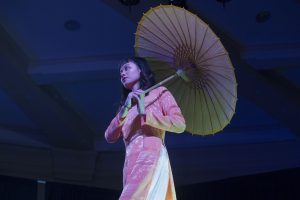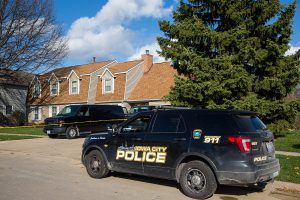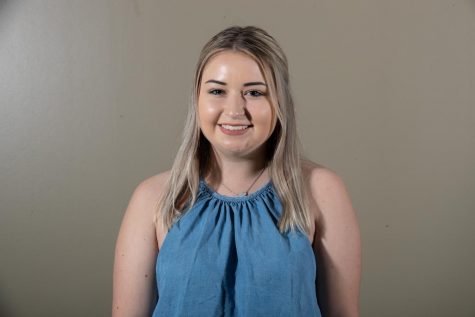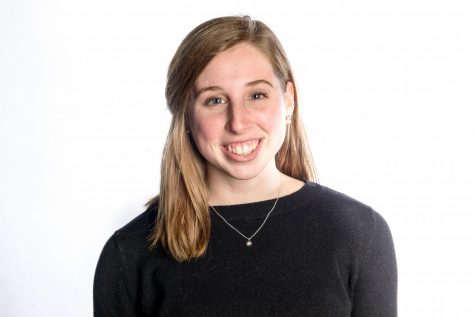UI program supports gifted students in early college transition
The Bucksbaum Early Entrance Academy allows gifted high-school students to transition early into their college years in partnership with the UI College of Education.
Dave Gould speaks to a group of students about civility during a dinner salon at Old Brick on Sunday, April 7, 2019.
April 7, 2019
In collaboration with the University of Iowa College of Education, the Bucksbaum Early Entrance Academy has integrated gifted high-school students to transition to college after their first two years of school.
Sunday evening, a group of freshman and sophomore UI students from the program met in Old Brick to discuss topics of conversation relating to transitions into adulthood. These “dinner salon”s, as the program calls them, help to develop ongoing conversations.
Students will opt out of high school early and come into this program at the UI, said David Gould, administrator at the Belin-Blank International Center for Gifted Education and Talent Development.
“The first year they live in Daum,” he said. “But within their first year, there are a handful of things we do to form a community and form support. The salons are one of those opportunities.”
Gould said the first-year and second-year cohort, various faculty and staff, and more campus partners attend the dinner salons.
The evening featured two guest speakers, Timothy Arnold of the UI Libraries and Frank Durham, an associate professor of journalism.
“I’ve come in a few times to speak about misinformation, fake news, and to teach students strategies to uncover fake news,” Arnold said. “We also talk about the differences between biased information from fake information — something that I think students struggle with sometimes.”
Arnold said students must understand the conversation’s necessity to continue surrounding who is lying and who isn’t with regard to fake news.
“I teach a course on the history of conservative media,” Durham said. “The tension between belief and science is one of the historical basis for historical media being different from traditional media. Journalism is based on empiricism — reporting and verification, certification of facts.”
Durham said the conversation about fake news needs to involve understanding current journalism as a site of truth. His class focuses on helping students understand the truth versus what is fake.
Jan Warren, assistant director for student services at Belin-Blank, said the program stemmed from a conversation with Durham regarding undergraduate studentsbeing able to think more about having challenging conversations with people they disagree with in both an intelligent and compassionate way.
“They need to understand who we are, who they are, and understand their own communication styles and how that can work or not work with one another,” Warren said.
RELATED: Students benefit from earning dual credit in high school
Second-year student Madisen Huffmann said she has enjoyed her time in the dinner salons, with networking and experience being the greatest opportunity from this program.
“The salons have been the biggest networking opportunity for us,” Huffmann said. “They’ve paired us with mentors from the community, and I was able to have dinner and talk one-on-one with someone interesting.”
The 18-year-old Huffmann, a social-work major, said she had always imagined herself doing big things. Through the programs at the UI, she said, she has been given the opportunity to do more.
“Growing up, everyone thought I was smart with the good test scores I got,” Huffmann said. “I studied abroad my sophomore year and did not want to go back to high school, because I thought it would be so boring. There wasn’t really a lot of opportunity in the small town I was from.”



